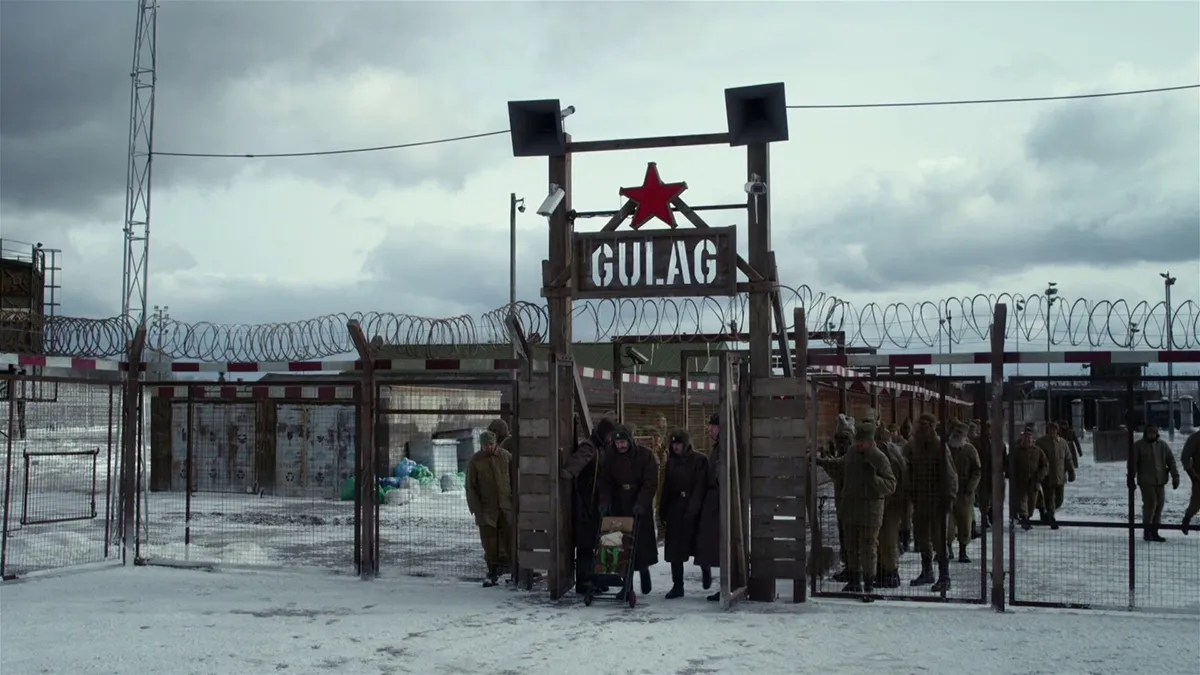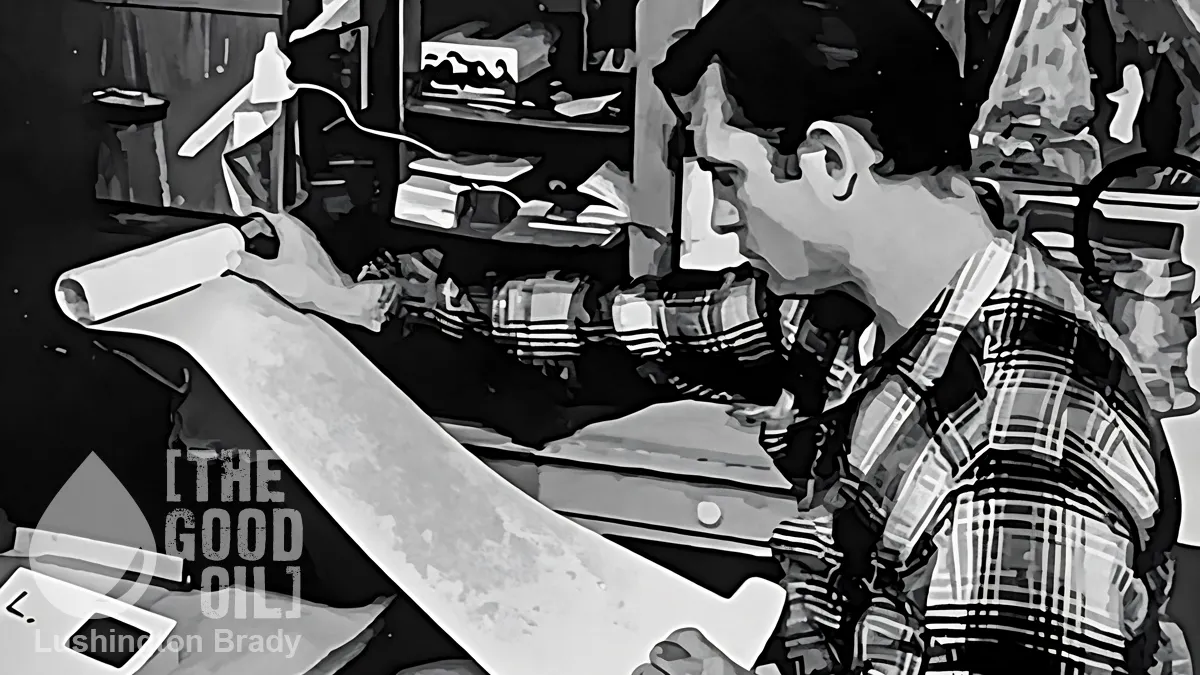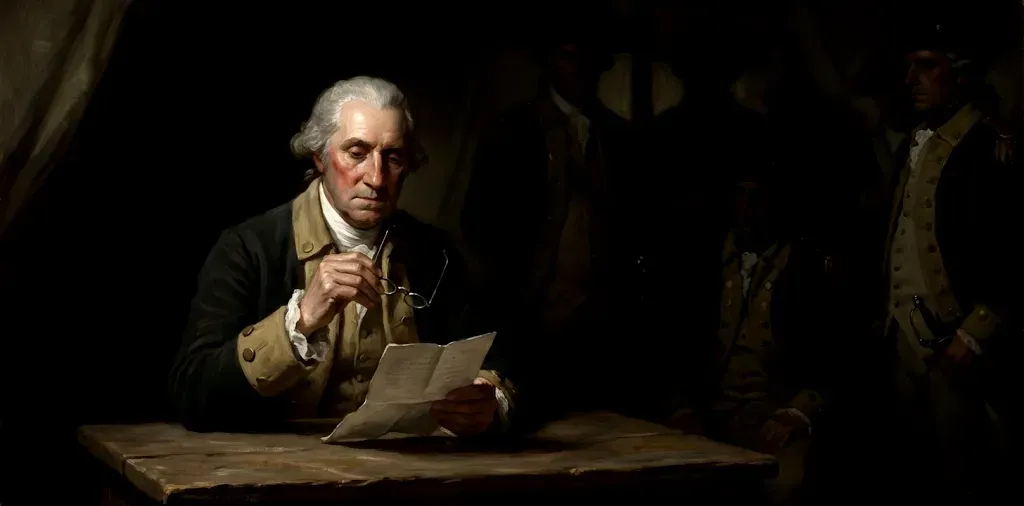Table of Contents
In a particularly cutting episode of Extras, Kate Winslet’s character wonders about Hollywood’s fixation on Holocaust movies. “I don’t think we really need another film about the Holocaust, do we? It’s like, how many have there been? You know, we get it – it was grim, move on.” When another character witters about “keeping the message alive about the Holocaust”, Winslet snorts and cynically observes that she’s only doing it because, “I’ve noticed that if you do a film about the Holocaust – guaranteed Oscar!”
Hollywood has churned out no end of movies about the Holocaust. On the other hand, you could count the number of Hollywood movies about an even more enormous 20th century mass-murder, the Soviet Terror and famine, and its gulags, on one hand. Peter Weir’s The Way Back is a notable exception. A compelling story which makes no bones about the horrors of the gulag, The Way Back also features a stellar cast, led by Ed Harris and Colin Farrell – and it sank without a trace.
One could be excused for thinking that left-besotted Hollywood doesn’t want to “keep the message alive” about Communist mass-murder and concentration camps.
It’s not as if there’s any shortage of testimony as horrifying as any in Holocaust literature. Such as Julius Margolin’s Journey into the Land of the Zeks and Back.
‘It was a gray mass of people in rags, lying motionless with bloodless, pale faces, cropped hair, with a shifty, gloomy look.’ Julius Margolin’s first encounter with Soviet prisoners takes place in August 1940 on the way to a labour camp in the north of Russia. Four years later, waiting at another transit point, he sees ‘semi-cripples, former, present and future invalids’, ‘bony shadows with hands and feet like sticks, in smelly tatters and dirty rags’. He has another year of horror ahead.
A Polish Jew stranded in the USSR at the beginning of the second world war, Margolin refused to take Soviet citizenship and as a result was sentenced to five years of forced labour. There followed a succession of prison camps with their inhumane conditions, everyday brutality, hunger and diseases. Margolin’s account of those years, first published in 1947, is as clear and detailed as it is chilling, his analysis of human behaviour under terror not blurred by what he had to live through.
What is notable about the gulag system is the way in which it brutally stamped out individuality and human spirit: making it the quintessential tool of communism.
‘I immediately ceased to be a human being,’ he says of his arrest. His abiding memory is of man being reduced ‘to a bestial condition, where the moment of satiety becomes the culminating point of every day, the sole stimulus of his actions’[…]
‘Every day the food ration is ready,’ former peasants say of their life in the camp. ‘At liberty I did not live better.’ Such testimonies demonstrate how far from reality the radiant future promised by the Soviets is for the majority of the population; but also, even more importantly, how little it takes for human beings to forget what makes them human, to stop noticing ‘the abnormality of the abnormal’. This motif runs through the book: ‘In camp, they say the words: man, culture, home, work, radio, dinner, cutlet, but not one of these words means what it normally signifies in freedom.’ In that, the camp is a replica of totalitarian society as a whole, one in which language has degenerated into empty propaganda.
Jordan Peterson has repeatedly recommended Solzhenitsyn’s The Gulag Archipelago as a study and a warning against the inevitable end of collectivist ideologies. In return, Peterson has been repeatedly attacked by defenders of communism. Why is Jordan Peterson writing about the Gulag? grumbled taxpayer-funded leftists, The Conversation.
Although, at least, the Conversation article didn’t explicitly try to justify the gulags (beyond the jaw-dropping assertion that “research has suggested that some attempts at re-education in the Gulag may have been more important and effective”), instead attacking Peterson personally.
On the other hand, advisors to two-time US presidential candidate Bernie Sanders were openly calling for establishing gulags in America.
‘The people who justify Soviet camps,’ he writes, ‘are preparing a second edition of Hitler in the world.’ The historian Timothy Snyder reiterates this view in his foreword, quoting the Polish philosopher Leszek Kołakowski, who said that ‘when we choose the lesser evil we must remember that it is evil’.
Margolin repeatedly turns to the West’s perception of the Soviet system, talking of ‘imagined communism’ and other illusions entertained by sympathisers of the USSR, labelling reports from enthusiastic visitors to the country as ‘childish prattle’. When [Journey into the Land of the Zeks and Back: A Memoir of the Gulag] first appeared, the crimes of the Stalinist regime were relatively little known in the wider world; by now they have receded far enough into the past to be seen by some as a historical aberration. And yet totalitarianism remains a threat to this day. That is why documents like this book must be read and remembered.
The Spectator
Those who refuse to read about the past evils of communism – or make movies about them – will be only too willing to repeat them.
Journey into the Land of the Zeks and Back: A Memoir of the Gulag is available from Amazon.
Please share this article so that others can discover The BFD









